
 Flash News
Flash News
Rama targets Shkodra prosecutor again: Gjeli wrote philosophical essay with innocence of illegal construction
Wanted for theft, 26-year-old arrested in Durrës
Released on bail, Salianji appears before the Probation Service
Threatened with a report by Rama, Shkodra prosecutor writes to KLP: React to political attacks
Korça/ 40-year-old man jumps from fifth floor balcony, in critical condition
'Washington Examiner': How USAID's Anti-Corruption Program Helps Corrupt Dictators
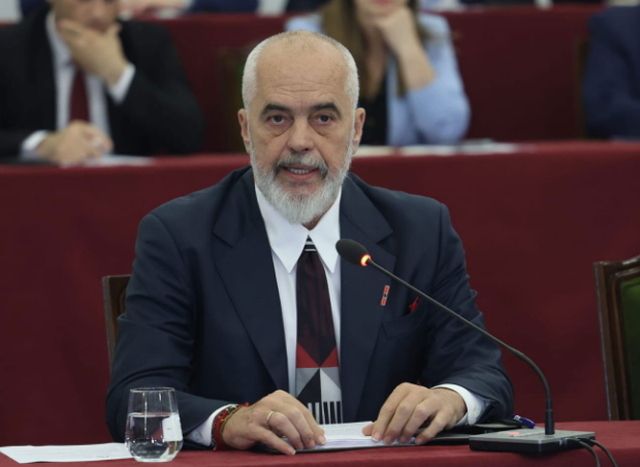
President Joe Biden and Secretary of State Antony Blinken agree. "Corruption harms economic growth, impedes development, destabilizes governments, undermines democracy and fuels global instability," said their press release announcing the US strategy to fight corruption. Sadly, like many affected by bureaucracy, the best-intentioned plans end up backfiring.
Here, the problem is both the US Agency for International Development and the culture of US embassies. USAID Administrator Samantha Power is adept with press releases and self-promotion, but less so with grassroots management. It maintains metrics that evaluate USAID programs by money spent rather than goals achieved.
Meanwhile, many US ambassadors and country teams prioritize good working relationships with presidents and prime ministers in the countries where they are stationed rather than risk local scorn over criticism.
Here the case of Albania is instructive. According to David Wisner, the charge d'affaires at the US Embassy in Tirana, the United States has invested over 27.5 million dollars in law enforcement and justice reform programs in Albania. Anti-corruption programs alone represent millions of dollars, yet Albania becomes more and more corrupt as Prime Minister Edi Rama seeks to turn Albania from the European club of democracy into a Turkish-style autocracy.
Indeed, Freedom House now ranks Albania as less free than Turkish-occupied northern Cyprus. While wishful thinking sometimes causes Freedom House to delay downsizing—here, the organization's long-standing refusal to fully appreciate Turkey's turnaround is a case in point—Albania's departure from democracy is now undeniable.
Consider the case of former deputy prime minister Arben Ahmetaj, a University of Kentucky-educated democracy activist who rose steadily through the Albanian political ranks as voters embraced his pro-Western leanings, technocratic credentials, and general competence.
In July 2023, as Ahmetaj's rise and popularity began to threaten the Albanian prime minister, Rama-appointed prosecutors ordered the Special Structure Against Corruption and Organized Crime to revoke the MP's immunity and arrest Ahmetaj. Ahmetaj was on vacation abroad and out of fear for his life and family, he simply did not return. While the Albanian Constitution prohibits arbitrary detention, 52% of Albania's prison population under Rama's leadership consists of those in custody.
Former US attorneys who inspected the allegations concluded they were a farce, unsupported by any evidence. Rama accused Ahmetaj of corruption in a tender for a waste incinerator in 2015, but Ahmetaj had no role in that case – Tirana Mayor Erion Veliaj, a Rama loyalist, is said to own the incinerator. Accusations that Ahmetaj accepted trips abroad were dismissed when the deputy prime minister was able to present invoices and bank statements proving that he had paid at that time.
Nor was Ahmetaj the only victim of false accusations of corruption. Rama jailed Fredi Beleri, an ethnic Greek Albanian, to sidestep his campaign to become mayor of Himara, a town on the Albanian Riviera. The charge? Buying four votes. Rama's real motivation appears to have been to knock out any politician who stood in the way of his multi-billion dollar real estate development plans.
Sadly, with both Ahmetaj and Beler, the US has unwittingly aided Rama's corruption and ambition. The US has invested millions of dollars in the Special Structure Against Corruption and Organized Crime. While the court began as a legitimate means of prosecuting corruption, US funding continued even as Rama bribed and armed it.
Like a series of US ambassadors to Turkish President Recep Tayyip Erdogan beginning in mid-2005, Yuri Kim, then ambassador to Albania, rubber-stamped Rama's positions and played down his concerns to ensure smooth relations. The parallel with Turkey continues as Erdogan used supposedly independent bodies to impose multibillion-dollar fines against or seize assets from opposition figures and those who donated to their campaigns.
Albania is not alone either. As US ambassadors and USAID look the other way and China offers aid, would-be dictators have hijacked US-funded anti-corruption programs in Somalia, the Democratic Republic of Congo, the Solomon Islands and Peru.
It may be too late for some countries - but not for Albania. Albanians deserve democracy, not dictatorship. If Biden is serious about fighting corruption, Rama should be in the dock, not his Democratic opponents.
Latest news

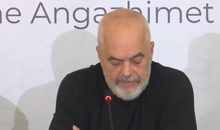

Amid the Alps in Theth, the law punishes even those who try to respect it
2025-07-11 10:14:16
Wanted for theft, 26-year-old arrested in Durrës
2025-07-11 10:03:29
After the dismissals, Rama gathers the mayors in Durrës
2025-07-11 09:42:29
Released on bail, Salianji appears before the Probation Service
2025-07-11 09:34:28

Haxhi Qamil Rama and the directors of the Municipalities!
2025-07-11 09:21:35
30 years since the Srebrenica massacre in Bosnia and Herzegovina
2025-07-11 09:10:52

From rhetoric to brandy, POLITICO: 9 things Nigel Farage can do in Albania
2025-07-11 08:53:35
Trump announces 35% tariffs on Canadian goods
2025-07-11 08:39:29
Foreign exchange, how much foreign currencies are sold and bought today
2025-07-11 08:24:25

Horoscope, what do the stars have in store for you today?
2025-07-11 07:59:39
Sun and high temperatures, weather forecast
2025-07-11 07:41:09
Morning Post/ In 2 lines: What mattered yesterday in Albania
2025-07-11 07:20:14
Zhupa: In Theth, some Austrian strategic investors want the empty area
2025-07-10 22:57:08
Malltezi: SPAK admits, we are in a process that began with Balla's false report
2025-07-10 22:34:16

Si të çliroheni nga bllokimet emocionale me anë të ushtrimeve
2025-07-10 21:57:24

Lala: Veliaj wanted to return as mayor
2025-07-10 21:40:46

VIDEO/ Brawl in Bolivian parliament, deputies physically clash
2025-07-10 21:20:30


Albania experienced one of the longest heat waves of the last decade
2025-07-10 21:01:09

The Government approves new procedures for declaring residence in e-Albania
2025-07-10 20:39:32

Koka: Northerners will not forget Edi Rama's racist operation in Theth
2025-07-10 20:18:24
The 3 zodiac signs that will be most affected by the 'Full Moon' of July 10
2025-07-10 20:04:49
New director of the National Center of Cinematography appointed
2025-07-10 19:51:12
Korça/ 40-year-old man jumps from fifth floor balcony, in critical condition
2025-07-10 19:40:19
'Tired Woman'/ The Syndrome That Affects Thousands of Women Every Day
2025-07-10 19:34:02
Jane Birkin's original Hermès bag sells for $10 million
2025-07-10 19:26:22

Britain-Ukraine agreement signed for 5,000 Thales missiles
2025-07-10 19:00:25
Fire in Zvërnec, flames endanger two hotels
2025-07-10 18:57:19
Croatia restores compulsory military service
2025-07-10 18:39:01
Spahia: The great truth of the strong accusation of the residents of Theth
2025-07-10 18:35:07


The Supreme Court left him in prison, Meta addresses the 'Constitution'
2025-07-10 17:57:21
New punishment with 'new' regulations
2025-07-10 17:54:46
EU translator fired over fears for Zelenskyy's safety
2025-07-10 17:45:37
'You are a policeman, but not God, take my soul', protest for Agon Zejnullahu
2025-07-10 17:41:21


Video/ Rama repeats the scenario, kneels before Meloni again
2025-07-10 16:56:31
He set fire to a plot of olive trees, 50-year-old man arrested in Shijak
2025-07-10 16:46:19

Rubio: US and Russia have exchanged new ideas for Ukraine peace talks
2025-07-10 16:36:20
Death of 27-year-old, Lipjan Police Commander Resigns
2025-07-10 16:21:28
Video/ An apartment burns in Tirana near the New Bazaar
2025-07-10 16:09:36


Jensila lights up the internet with her birthday greetings to Ledri
2025-07-10 15:42:08
They're full of pesticides! List of 12 products we need to be careful of
2025-07-10 15:31:04

Worker falls from scaffolding in Shëngjin, urgently sent to Trauma
2025-07-10 15:11:03
Malltezi: Within one day they seized my accounts, properties and shares
2025-07-10 15:01:23
EU: Israel has agreed to more aid to Gaza
2025-07-10 14:55:19


Murder of Reni Dobra, 23-year-old's vehicle pulled from the water
2025-07-10 14:29:23
Trump's tariffs on Brazil raise coffee prices
2025-07-10 14:16:07
Ursula von der Leyen survives no-confidence vote
2025-07-10 14:04:27


Fire in Lezha, flames near electrical substation
2025-07-10 13:32:24
Residents clash with police in Theth, a woman faints
2025-07-10 13:24:38
"Rama and Xanun"
2025-07-10 13:15:46

Zodiac signs most likely to get divorced in July 2025
2025-07-10 12:45:51
A scapegoat for an illegitimate Republic
2025-07-10 12:35:02
"He has devastated his own nation"/ Berisha: Rama imprisons his opponents!
2025-07-10 12:26:54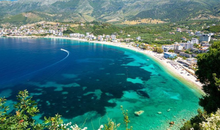

Albanian man injured with knife in Italy
2025-07-10 12:08:55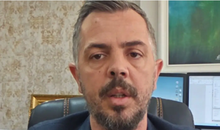





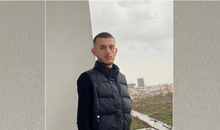
23-year-old in Mat drowned with rope, 4 suspects are being held
2025-07-10 10:58:53
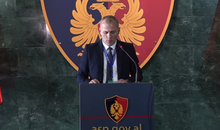
After the dismissals, the new director of the Shkodra Police is appointed
2025-07-10 10:30:10
BIRN: Rama's action for public spaces, a repeated spectacle
2025-07-10 10:29:11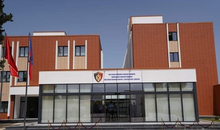
Action in Theth, Shkodra Police leaders dismissed
2025-07-10 10:16:28
Fatal accident on the Tirana-Durres highway
2025-07-10 10:01:58
The incinerator does not exist, but the government continues to increase funds
2025-07-10 09:51:45
Albania is aging at a rapid pace! 30% of the population is over 60 years old
2025-07-10 09:46:23
End of an era, Modric says 'goodbye' to Real Madrid
2025-07-10 09:36:09
Mount Dukat has been on fire for 6 days, residents request air intervention
2025-07-10 09:27:24

"Poverty on the rise"/ DW: Many people in Germany are not getting paid
2025-07-10 09:08:06
Horoscope, what do the stars have in store for you today?
2025-07-10 08:51:59
